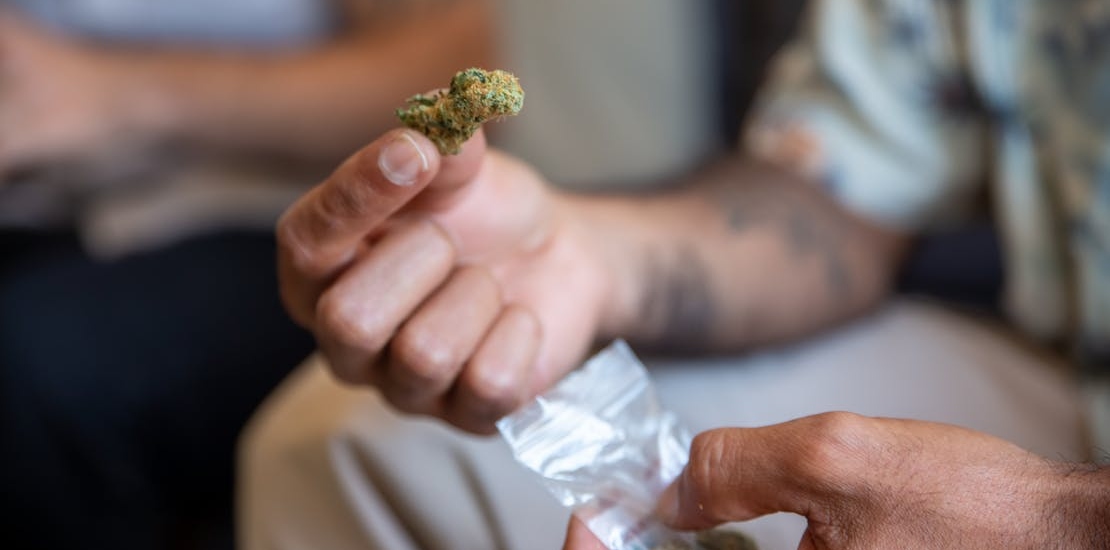The Hidden Danger of Experimenting Leading to Addiction: What Every Young Adult Should Know

Adolescence and early adulthood are stages of life when one tries new things and experiments. Whether due to curiosity, peer pressure, or simply wanting to fit in, many start experimenting with drugs or alcohol. Such behavior might seem harmless initially, but in the long term, it can have many unwanted negative consequences. Some people who try using alcohol or illicit substances quickly stop, while others might develop dependence. This is why it’s essential to understand the hidden dangers of experimenting leading to addiction. We at the Tranquility Recovery Center frequently work with individuals who never intended to develop substance use disorders. Still, they end up seeking professional services like rehab San Fernando Valley to help them overcome the challenge of dependence and addiction.

This post will explore the vulnerability of young people, the dangers of drug experimentation, and how experimentation can evolve into addiction. Furthermore, we will help you recognize the signs of dependence developing early on. These tips will be a useful guide for any young adult or people who frequently interact with them.
Why Young Adults Are Prone to Experimentation
Young adulthood is still a time when many things change and people tend to explore and embark on self-discovery journeys. The youngsters will be trying new things and pushing boundaries in the effort to understand themselves and acquire experiences they believe they need. We should encourage this natural exploration. However, when it comes to substances, experimentation can be risky and end up having devastating consequences.
There are several reasons why young adults are especially vulnerable.
- Curiosity: For many young people, alcohol or drug use starts simply due to curiosity. They might be wondering what it feels like to be drunk or high.
- Peer pressure: Peers can encourage or directly pressure young people to use substances. Furthermore, young people observe and mirror each other. Out of a desire to fit in, young people can lean into substance use.
- A fear of missing out: If a young person feels everyone is drinking and getting high instead of them, they might experience FOMO (fear of missing out). Research even shows that those who score higher on FOMO tend to drink more.
- A desire for Independence: Sometimes, youngsters start using alcohol or drugs, believing that this proves they can make their own choices, go against the current, and be independent. Saying yes to alcohol or drugs can also feel like a way to be rebellious or express yourself.
- Underestimation of the risk: Many do not realize how quickly experimentation can lead to dependence or addiction. They might have a false impression that using has no consequences, especially if they saw others use without a negative effect.
is experimenting with drugs normal?
If you are tortured by this question, allow us to reassure you. Yes, it’s completely normal to want to try new and forbidden things, especially when you are young and hungry for new experiences. What is important is to make informed decisions about it and prevent experimenting leading to addiction.

The Slippery Slope: From Experimentation to Addiction
Believing you can stop using whenever you want is very common. However, this is often not the case. While a single use is unlikely to cause dependence, it can still impact brain chemistry, increasing the odds of developing substance use disorders. Furthermore, experimentation does not imply a single use or trying the least dangerous substances. Drugs typically trigger a surge of dopamine, making you feel good and wanting to repeat the experience. Repeated and uncontrolled use further increases the chance of developing dependence and ultimately addiction to alcohol or drugs.
There are a couple of factors contributing to experimenting leading to addiction.
- Increased tolerance: If some of your experiences experimenting were good and you feel like continuing to experiment, you might be trying increased quantities or different substances. Such behavior can lead to your body developing tolerance and requiring more substances for the effect you are seeking. Increasing the dosage can lead to serious health complications as well as addiction.
- Emotional and psychological triggers: Challenges like anxiety, trauma, or depression can increase the risk of continuing the use after experimenting and ultimately developing addiction. Drug and alcohol use can become a way to self-medicate. And why do people turn to drugs as a coping mechanism? Because they provide a quick fix, detaching you in the short term from your negative feelings and experiences. Still, this is a maladaptive coping mechanism, one that should be addressed with cognitive behavioral therapy Los Angeles.
The question, “Can experimentation turn into addiction?” must be answered with a clear yes. While not all experimentations will end up with addiction, all addictions start with experimentation.
Common Substances of Concern
People may be careless with drugs they think are soft or safe. Furthermore, alcohol is legal, creating a false belief that it is not as dangerous as drugs. While the media is warning about the opioid crisis and highlighting the importance of fentanyl rehab Los Angeles, in reality, young people first turn to substances that are the easiest to find. Therefore, common substances creating the most concern about experimenting leading to addiction include
- Alcohol and marijuana: Most people view alcohol and marijuana as socially acceptable substances with no negative consequences. They are the most frequent recreational substances of choice. Still, their frequent use can lead to brain changes, issues with emotional regulation, and poor decision-making.
- Prescription drugs: The issue with this category of misused substances is that there is a false belief they are safe because they have been prescribed by medical doctors. This is one of the reasons they are a frequent choice for experimenting with and even mixing with alcohol.
- Party drugs: The use of MDMA, ketamine, and other party drugs is so frequent that it gives a false impression that they are a part of the scene and a normal occurrence. However, other than carrying the risk of an emotional toll after using them, they can be contaminated and bring about many health risks.

Warning Signs of a Developing Problem
It’s not always easy to recognize when someone is using alcohol or drugs. Still, some early signs of addiction start manifesting even in those who are only experimenting.
Behavioral changes
- Withdrawing from your social circle
- Losing interest in activities you previously enjoyed
- Declining academic or job performance
- Engaging in risky behavior
Emotional and mental health changes
- Mood swings or irritability
- Anxiety or paranoia
- Depression or apathy
- Difficulty coping with stress
If you start noticing these signs in yourself or your loved ones, think about seeking professional help. Many young people benefit from group therapy for addiction treatment, as they get to connect with their peers and share experiences best understood by someone of their age.
How to Stay Safe and Informed
The best way to stay safe and experiment in your life is to be well informed and make educated decisions. Understanding the difference between experimentation and addiction, as well as learning about what are the effects of drug experimentation can set you on the right path.
Here are a few things you can do to reduce the risk of experimenting leading to addiction:
- Set personal boundaries. Decide what you are comfortable with. This way, peer pressure will not have a strong effect on you. Once you know your boundaries, you will feel more confident about the choices you are making.
- Learn the real risks. Ensure you are well informed about various risks related to drug use, rather than assuming alcohol and drugs are safe just because you know people using them.
- Know where to find help: Regardless of whether you choose to experiment with alcohol and drugs or not, you should know who to turn to if you or someone you know starts struggling with substance abuse. Inform yourself about where you can get professional help. And if you are wondering, does insurance cover rehab? You shouldn’t worry. Many insurance plans cover rehab fully or partially.
At Tranquility Recovery Center, you can count on drug addiction treatment Los Angeles and many other services that can help you overcome challenges and thrive. We can be one of your resources for education and support.

Final words on Experimenting Leading to Addiction
Young adulthood is a time of change and new experiences, as well as a time when the pressure to experiment is the strongest. It is crucial to understand why is experimenting with drugs risky and how is experimenting leading to addiction. The aim is to have youth experiment in an informed way, not to frighten them. Education, a support system, and resources can help you get the desired experiences without jeopardizing your health.
However, if you or someone you care about has developed substance use problems due to experimenting, you can always turn to professionals at Tranquility Recovery Center. We’ll help you and your loved ones find a way out of dependence and addiction. Contact us and make informed decisions about your health.
You Have Questions
We Have Answers
At Tranquility Recovery Center, we offer treatment for a wide range of addictions, including alcohol, opioids, prescription drugs, and illicit substances. Our team tailors each program to meet individual needs, focusing on both the physical and emotional aspects of recovery.
At Tranquility Recovery Center, we offer treatment for a wide range of addictions, including alcohol, opioids, prescription drugs, and illicit substances. Our team tailors each program to meet individual needs, focusing on both the physical and emotional aspects of recovery.
At Tranquility Recovery Center, we offer treatment for a wide range of addictions, including alcohol, opioids, prescription drugs, and illicit substances. Our team tailors each program to meet individual needs, focusing on both the physical and emotional aspects of recovery.